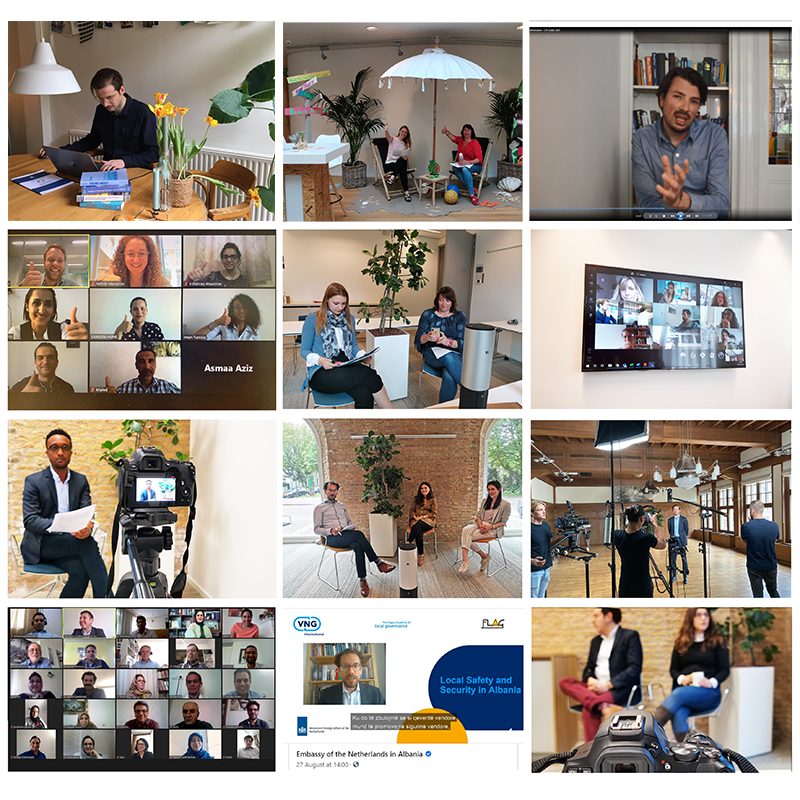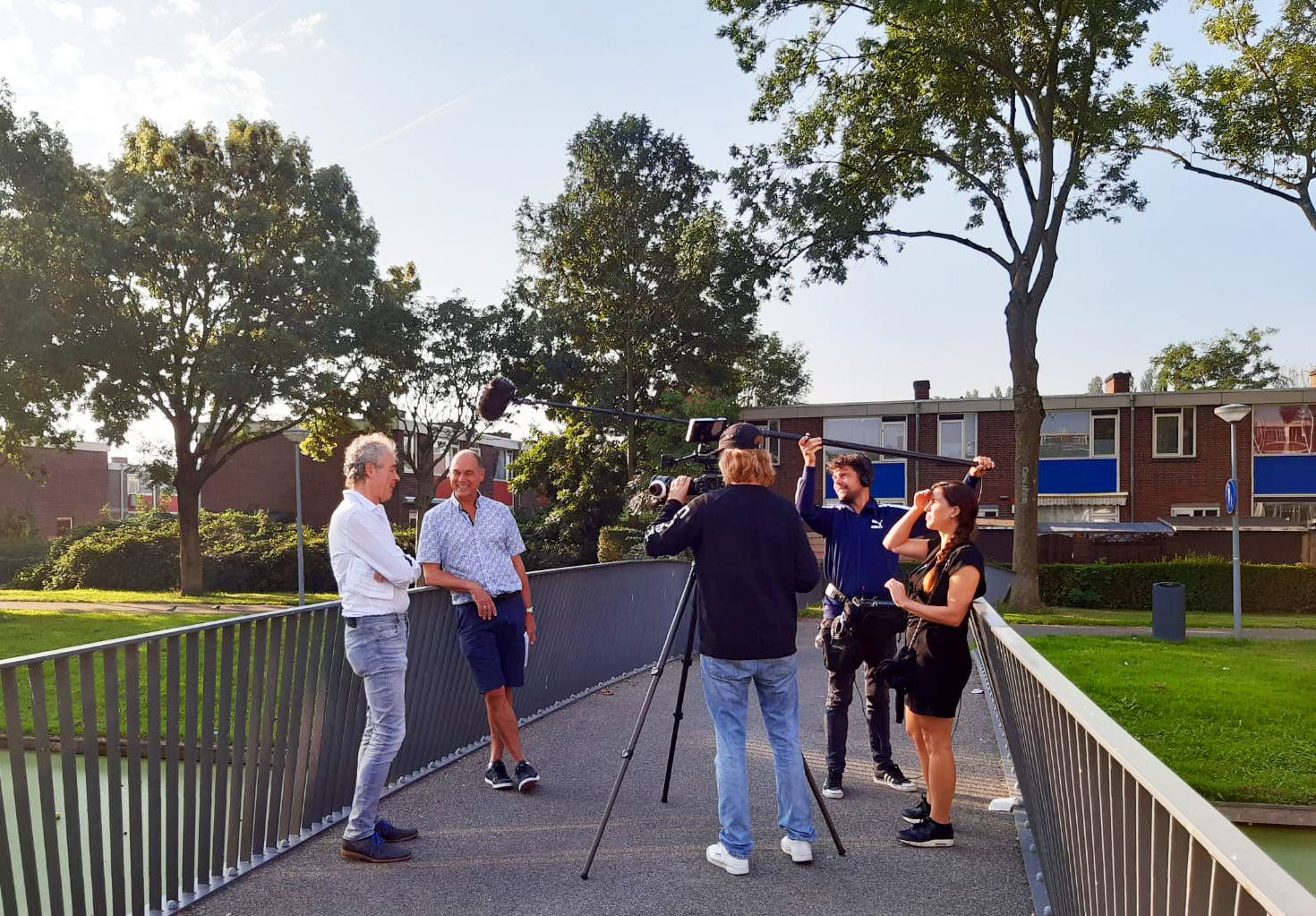It’s already been six months since the COVID-19 pandemic started, and like many other organisations and sectors, The Hague Academy quickly adapted to the new circumstances so we could continue working towards our mission of strengthening local democracy worldwide.
Our staff has worked hard to ensure an interactive and high quality learning offer: from technical requirements and ensuring no participant is left behind, to exploring online study-visits, online workshops with live translation to different languages, and managing the participants’ levels of motivation and engagement. Below are the experiences of three of our trainers: Koen, Yasmin and Kelly.
 As stated by Benjamin Franklin, one’s ability to adapt to changes will determine your success in life. However, despite all adaptations to our training courses, and efforts to make them interactive as much as possible, the close level of contact of in-person trainings is not easy to recreate in an online environment. As Koen puts it: “Normally in trainings, you see people grow, develop friendships and explore new topics. I find this very motivating. Being in the same space as the participants also gives you an opportunity to learn a lot from them, their cultures and their work. However, I was surprised to see how adaptive people are in the online trainings, and how despite the challenges, they still want to learn and engage with other participants. It was an eye-opener for me to see how interactive and inquisitive people can be online.”
As stated by Benjamin Franklin, one’s ability to adapt to changes will determine your success in life. However, despite all adaptations to our training courses, and efforts to make them interactive as much as possible, the close level of contact of in-person trainings is not easy to recreate in an online environment. As Koen puts it: “Normally in trainings, you see people grow, develop friendships and explore new topics. I find this very motivating. Being in the same space as the participants also gives you an opportunity to learn a lot from them, their cultures and their work. However, I was surprised to see how adaptive people are in the online trainings, and how despite the challenges, they still want to learn and engage with other participants. It was an eye-opener for me to see how interactive and inquisitive people can be online.”
The advantages of online learning
Online learning offers its own particular perks. One advantage is that participants can complete training modules in their own time and place, so they don’t need to be away from their work or families. As a result, more people can participate. Spreading the content of a training over a few weeks instead of a few days also allows participants to take some time for reflection on their learnings.
 As Yasmin explains: “We offer a mix of learning methods and tools to keep our participants engaged. We are trying to be innovative and vary our formats and methods as much as possible. Technology has also allowed us to feel close to the participants, even while being far. We have encouraged them to work virtually in teams as well. This brings them closer to each other and allows them to learn more about one another and make friends.” In Yasmin’s experience, it is still possible to link the course content to the participants’ own experiences. “I enjoy a lot when participants find similarities across different contexts and learn from each other’s expertise, and this is still happening through discussion forums, zoom calls and other resources.”
As Yasmin explains: “We offer a mix of learning methods and tools to keep our participants engaged. We are trying to be innovative and vary our formats and methods as much as possible. Technology has also allowed us to feel close to the participants, even while being far. We have encouraged them to work virtually in teams as well. This brings them closer to each other and allows them to learn more about one another and make friends.” In Yasmin’s experience, it is still possible to link the course content to the participants’ own experiences. “I enjoy a lot when participants find similarities across different contexts and learn from each other’s expertise, and this is still happening through discussion forums, zoom calls and other resources.”
 In Kelly’s opinion, e-trainings allow them to work a lot with visuals. “I love it when people share pictures and stories from their home context that are related to the topic of the training. Recently we received a picture of an interesting peacebuilding project through street art.”
In Kelly’s opinion, e-trainings allow them to work a lot with visuals. “I love it when people share pictures and stories from their home context that are related to the topic of the training. Recently we received a picture of an interesting peacebuilding project through street art.”
What about the future?
How will our work transform in a post-pandemic world? Will we go back to business as usual or will online learning stay the norm? What about the digital divide?
Kelly argues that as people around the world are becoming more tech-savvy and familiar with online tools, the e-courses will offer an added value to our face-to-face-trainings. “Of course, real life interaction is irreplaceable and fun, so I hope that we continue to welcome people from all over the world in The Hague and are able to travel abroad again to meet participants in their own countries.”
Koen also explains: “We already offered online learning modules before the pandemic, but I believe it will become more important in the future. This experience has shown that you can reach a lot of learning objectives through online methods. I hope for a combination, where online and face-to-face learning methods are used, combining the benefits of both approaches.”


